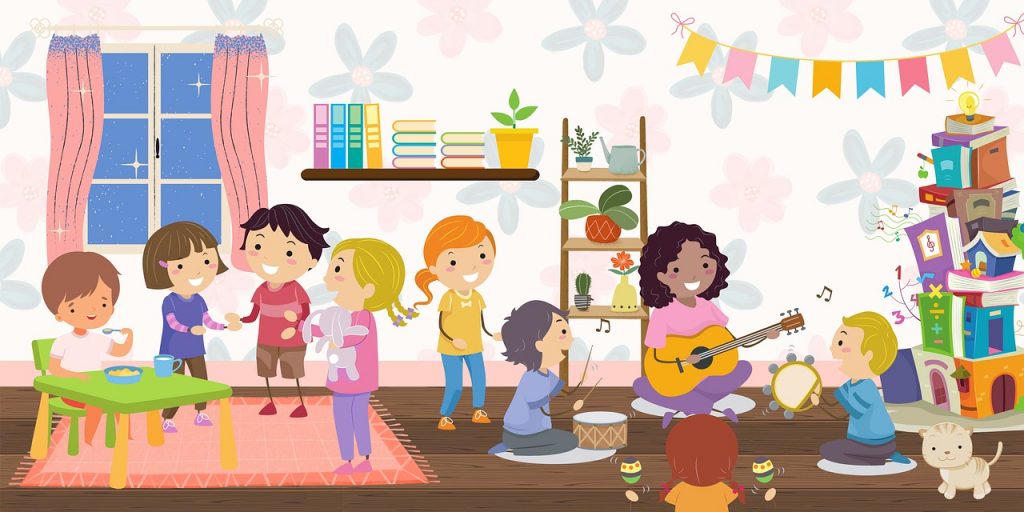The Importance of Play-Based Learning in Early Childhood Education

Introduction
Play is the universal language of childhood, a natural and instinctive way for children to explore, learn, and make sense of the world around them. In early childhood education, play-based learning is not only enjoyable but also essential for fostering holistic development and laying the foundation for future academic success. In this blog post, we’ll delve into the significance of play-based learning and explore its numerous benefits for young children’s cognitive, social, emotional, and physical development.
The Nature of Play-Based Learning
Play-based learning involves child-directed, hands-on activities that encourage exploration, creativity, and problem-solving. Rather than following a rigid curriculum or structured lesson plan, children are free to follow their interests, make choices, and engage in meaningful, open-ended play experiences. Play can take many forms, including imaginative play, sensory play, construction play, outdoor play, and cooperative play, all of which offer valuable learning opportunities.
Benefits of Play-Based Learning:
- Cognitive Development: Play-based learning stimulates children’s curiosity, imagination, and creativity, laying the groundwork for critical thinking, problem-solving, and decision-making skills. Through play, children learn to experiment, make connections, and explore cause-and-effect relationships in a hands-on, experiential manner.
- Social Development: Play provides opportunities for children to interact with their peers, negotiate roles and rules, and develop important social skills such as cooperation, communication, and empathy. Through collaborative play, children learn to share, take turns, resolve conflicts, and work together towards common goals.
- Emotional Development: Play allows children to express and regulate their emotions, build self-confidence, and develop resilience in the face of challenges. Through imaginative play, children can explore different roles and perspectives, process difficult emotions, and practice problem-solving strategies in a safe and supportive environment.
- Physical Development: Play-based learning promotes physical activity and gross and fine motor skills development. Whether climbing on playground equipment, building with blocks, or engaging in active games, children develop strength, coordination, and spatial awareness through active play experiences.
- Language Development: Play-based learning encourages language development and communication skills as children engage in conversations, storytelling, and role-playing with their peers. Through play, children expand their vocabulary, practice sentence structure, and develop early literacy skills such as phonemic awareness and letter recognition.
Implementing Play-Based Learning:
- Provide a variety of open-ended materials and resources that encourage creativity and exploration, such as blocks, art supplies, natural materials, and dramatic play props.
- Create a supportive environment where children feel empowered to take risks, make mistakes, and learn from their experiences.
- Facilitate opportunities for child-led play experiences both indoors and outdoors, allowing children to follow their interests and pursue their own learning goals.
- Observe and document children’s play experiences to inform curriculum planning, identify individual strengths and interests, and scaffold learning opportunities.
Conclusion
Play-based learning is a powerful and effective approach to early childhood education, offering numerous benefits for children’s cognitive, social, emotional, and physical development. By providing rich and meaningful play experiences, educators can ignite children’s natural curiosity, creativity, and love of learning, setting them on a path towards lifelong success and fulfillment. Let us embrace the importance of play-based learning and create nurturing environments where children can thrive, explore, and discover the joy of learning through play.